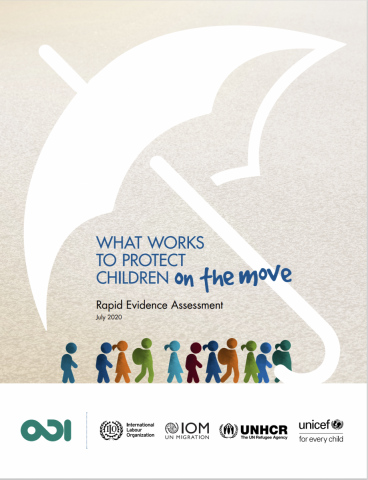Knowledge Platform
What Works to Protect Children on the Move
Approximately 50 million children can be considered ‘on the move’. Of these approximately 13 million are child refugees, 936,000 are asylum-seeking children, and 17 million children have been forcibly displaced inside their own country (Bhabha and Abel, 2019; International Organization for Migration (IOM), 2020). Other children considered ‘on the move’ include migrants and returnees.
In recent years, global frameworks such as UN Convention on the Rights of the Child, the International Convention on the Protection of the Rights of All Migrant Workers and Members of Their Families, and the Global Compact on Refugees, have helped develop a more supportive legal and policy environment for protecting children on the move. At the same time, evidence on what works and what does not work in protecting children on the move, and why, has not been synthesized across a range of groups (refugees, internally displaced children, migrant children, returnees, children moving with and without families, and in different settings).
To fill the evidence gap, this rapid evidence assessment (REA) aimed to answer three questions.
What interventions have been effective in ensuring the protection of children on the move?
What are the implementation factors that make these interventions effective or that hamper effectiveness (for example the context of the intervention, and specific design features such as who is targeted)?
What kinds of social welfare and child protection systems are linked to effective interventions?
This report provides an assessment of the reviewed literature and its key findings, and identifies gaps.
